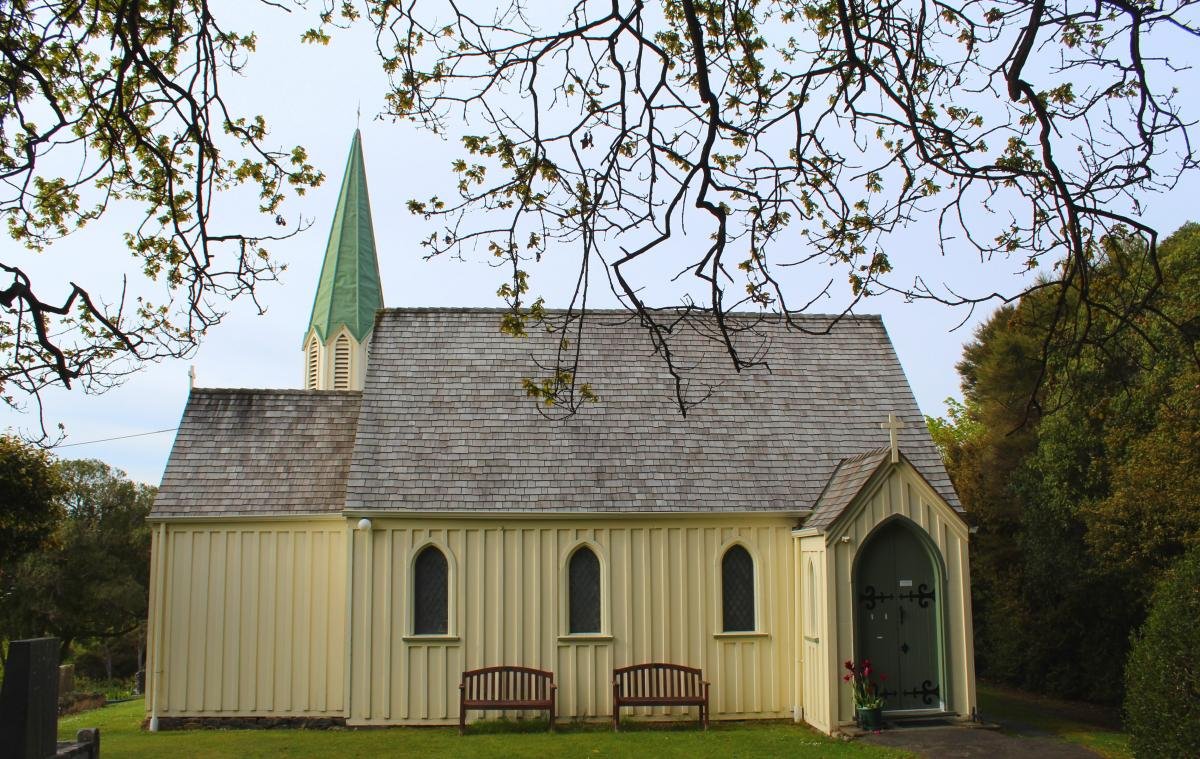Unto us a Church is Given, written by Rev Roger Barker with Stuart Strachan, tells the 150-year history of St Barnabas Anglican Church in Warrington.
Mr Barker’s association with the small coastal church began in 2004 when he was appointed vicar of the parish of Port Chalmers-Warrington.
He was officially the vicar there for six years but remained associated with the church for about a further eight years.
Now retired and living in Otaki, Mr Barker said the book was his “love letter” to St Barnabas.
“There was something very special not only about the beautiful church, but the people there.”
As well as highlighting key periods in the church’s history, his book reveals the sometimes chequered past of people associated with the church, and including poisoning and penury.
The first chapters explore the history of the church’s founders, Captain William Pitt and wife Annie.
Mrs Pitt was from a wealthy Australian family, the Gellibrands.
Capt Pitt was from “minor aristocracy”, Mr Barker said.
In the only known picture of Capt Pitt, which was reproduced in the book, he looked like an escapee from George Bernard Shaw’s play Arms and the Man, trying to portray “gravitas” in an ill-fitting military uniform, despite looking somewhat awkward, he said.
“A very pathetic looking guy, basically.”
Mr Barker wondered how on earth someone like that, even given he married very well, could uproot himself from an army career in Australia, land in an underdeveloped neck of the woods in New Zealand, and plant a seed that has now grown into a 150-year-old story.
In 1866, the 400-acre (160ha) “Warrenton Park Farm” in Blueskin was advertised for sale in the Otago Daily Times, and Capt and Mrs Pitt bought it, moving in August 1866.
Mrs Pitt’s brothers, the Gellibrands, purchased the property as trustees of her marriage settlement.
Before the couple moved in, Capt Pitt owed the trustees £500 and was indebted to several people.
Despite receiving £1000 from a “Mrs Pitt” in England, probably his mother, he soon borrowed another £500 for farm stock and equipment.
His farming efforts failed, and by 1870 he was bankrupt, again having to rely on family to help.
Other tales in the book relate to James and Louisa Smith, Mrs Pitt’s sister and brother-in-law.
The couple were living in Tasmania when Mr Smith, a barrister and solicitor, was defence counsel in a murder trial of a ship’s captain, William Andrew Garvie, accused of poisoning his wife, Catherine.
The couple moved to Dunedin in 1865 and were to become very involved in the early days of the church, Mrs Smith being given the honour of laying the foundation stone.
These tales and many more relay the history of the church over 150 years, since its building in 1872.
Stuart Strachan helped uncover some of these details, as well as providing photographs for the book, copy-editing and seeing the book through to production.
sam.henderson@thestar.co.nz













Leave a Reply